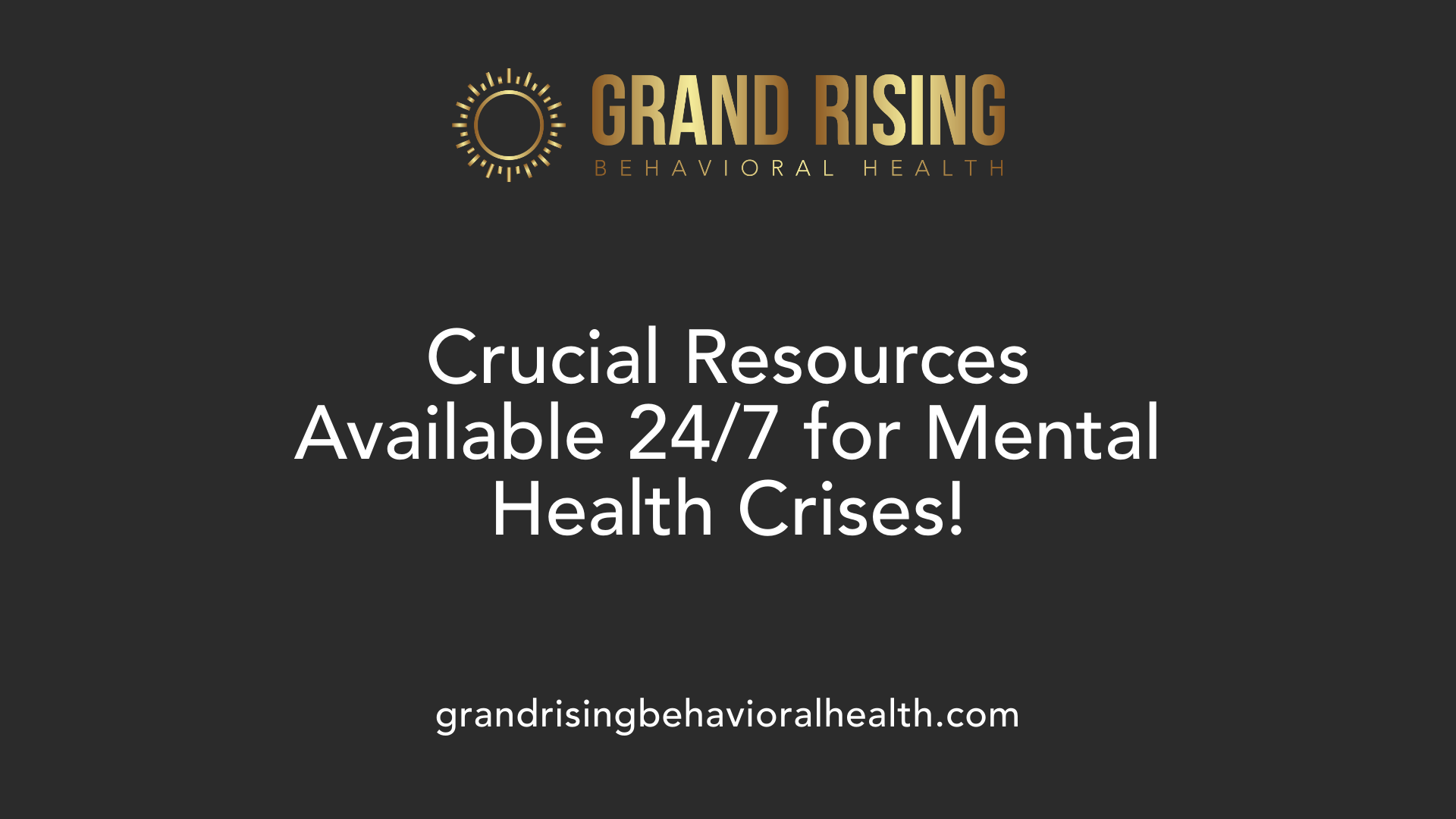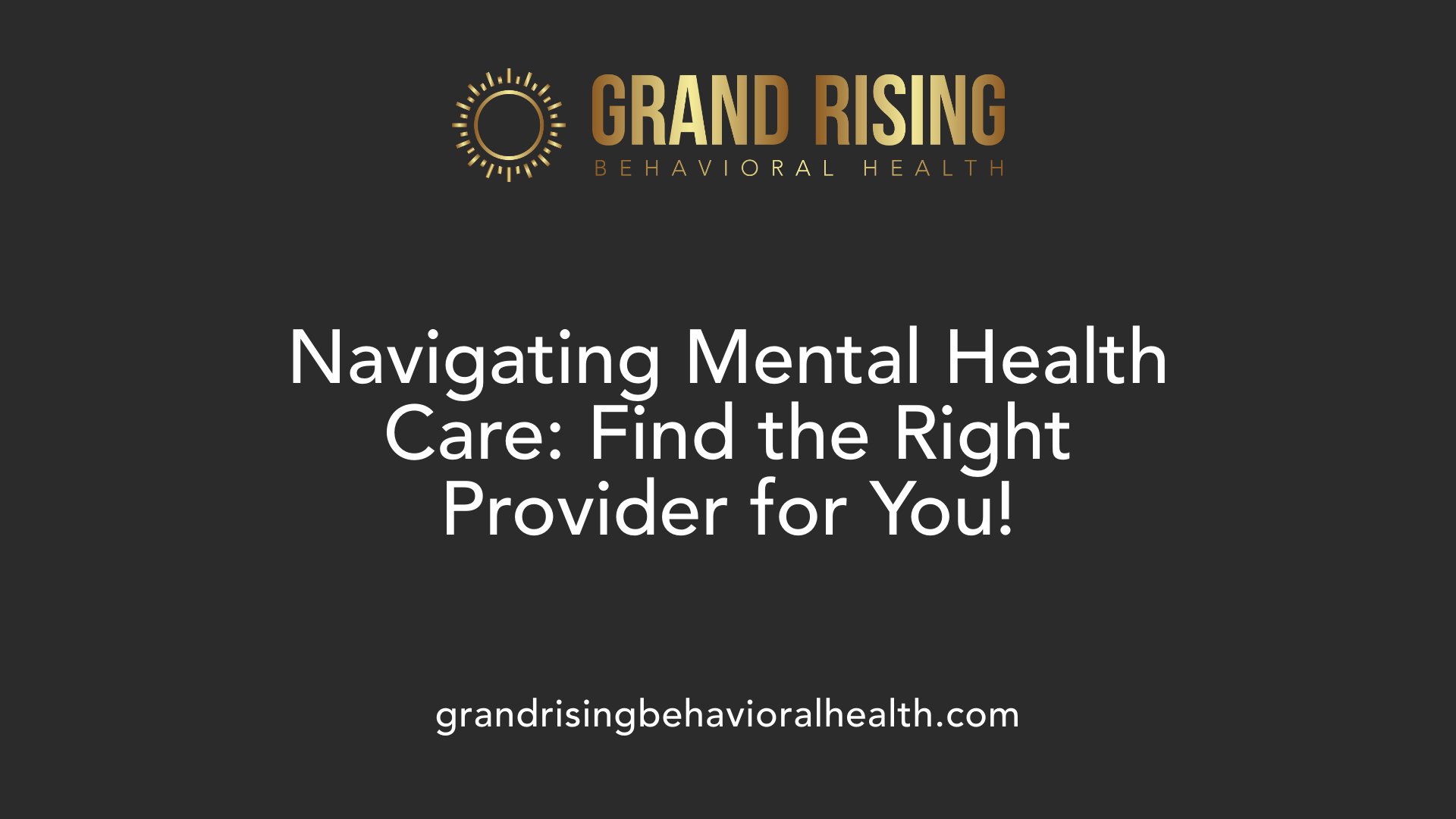How to Access Behavioral Health Support for Mental Wellness
Navigating Mental Health Resources for Your Wellness Journey

Your Guide to Accessing Mental Health Support
Mental health is pivotal to our overall well-being, yet accessing the requisite support can often be a daunting task fraught with challenges. Whether you're seeking immediate crisis intervention, ongoing therapy, or exploring resources tailored to specific demographic needs, understanding 'How to Access Behavioral Health Support for Mental Wellness' is crucial. This guide aims to educate, empower, and equip you with the necessary tools and information to navigate this vital aspect of health care.
Immediate Help: Crisis Resources You Should Know

Immediate Crisis Resources
If you or someone you know is facing a mental health crisis, immediate support is available through several vital resources. In life-threatening situations, it's crucial to call 911 or visit the nearest emergency room for urgent medical attention.
Where to Seek Help During a Mental Health Emergency
For non-life-threatening emergencies, reach out to the 988 Suicide & Crisis Lifeline by calling or texting 988. This service provides confidential support 24/7 to anyone in emotional distress or suicidal crisis. Additionally, the Veterans Crisis Line is accessible by calling 988 and pressing '1' for specialized support for veterans, also available round the clock. For situations tied to natural disasters, the Disaster Distress Helpline offers crisis counseling via 1-800-985-5990, providing services in more than 100 languages.
Mobile crisis teams can be requested through various hotlines and can respond directly to the location of a crisis, offering on-site assistance from trained mental health professionals.
24/7 Support Lines Available
Here’s a quick overview of key crisis resources:
| Service | Contact Information | Availability |
|---|---|---|
| Suicide & Crisis Lifeline | Call or text 988 | 24/7 |
| Veterans Crisis Line | Call 988, then press '1' | 24/7 |
| Disaster Distress Helpline | Call 1-800-985-5990 | 24/7 |
| NYC 988 Service | Call or text 988 | 24/7 |
Remember, reaching out for help can be the first step toward recovery. Don’t hesitate to connect with any of these resources if you or someone you know is in crisis.
Finding the Right Mental Health Care Provider

How to locate mental health services
Finding mental health services can be a crucial step on the path to recovery. Start by seeking referrals from your primary care provider, who might recommend specialists suited to your needs. Alternatively, explore resources offered by organizations like SAMHSA or local Veterans Affairs (VA) offices, which help locate mental health services in your area.
Utilizing health plans to access care
Insurance coverage varies widely, but many plans offer mental health services. Review your health plan to understand what mental health benefits are available, including preventative care, therapy, and support groups. Some organizations, like UnitedHealthcare, offer guidance on accessing these services and finding the right mental health provider.
Insurance coverage and resources
Insurance coverage is a major factor in accessing mental health services. Approximately 30% of individuals refrain from seeking help due to financial constraints and inadequate insurance options. It's essential to check your policy for mental health provisions and utilize tools like provider directories to find specialists that fit your plan. For those without insurance, programs like Medicaid can provide support, as it's the largest payer for mental health services in the U.S.
How accessible are mental health services?
Access to mental health services in the U.S. faces significant challenges. Only about one-third of the population lives in areas with adequate mental health professionals. In 2020, over 21% of adults experienced mental illness, yet barriers like a scarcity of psychiatrists—particularly in rural areas—impede effective care. This shortage is projected to worsen, emphasizing the need for efficient use of existing resources and advocacy for policy changes to improve access.
Understanding Behavioral Health and Mental Health

What is the relationship between behavioral health and mental health care?
Behavioral health and mental health care are closely linked yet distinct concepts. Behavioral health encompasses a broader spectrum, which includes emotions, behaviors, and overall well-being that relates to mental health disorders as well as substance use disorders. On the other hand, mental health specifically focuses on psychological and emotional states. For instance, people might seek mental health support for anxiety or depression, while behavioral health might also consider their interaction with substances like alcohol or drugs.
Understanding this relationship helps in grasping the importance of comprehensive care. Effective treatment blends both behavioral and mental health services, ensuring that the various facets of a person’s well-being are addressed. This holistic approach is particularly important for populations facing unique barriers to access, such as American Indians and Alaska Natives. Those communities benefit from culturally tailored programs available through the Indian Health Service, which fosters a more inclusive support system.
Importance of comprehensive care
Access to healthcare resources is critical for mental wellness. Ensuring that services blend physical and behavioral health care can significantly improve patient outcomes. It not only addresses immediate psychological needs but also considers the lifestyle factors contributing to those issues, enhancing the overall quality of care provided.
Resources for diverse populations
Diverse populations often face additional challenges in accessing mental health resources. Various initiatives aim to bridge these gaps, offering tailored programs that respect cultural contexts. For instance, advocacy groups, alongside governmental agencies, provide locality-based resources to ensure equitable access for all and integrate behavioral health services into general healthcare settings.
This comprehensive understanding is essential for developing effective strategies toward mental and behavioral health, especially as the stigma surrounding mental health care gradually decreases, encouraging more individuals to seek the assistance they need.
Supporting Your Mental Wellness: Strategies and Tips

What are some steps to improve mental well-being?
To enhance mental well-being, embrace five essential steps:
Forge Strong Connections: Prioritize building relationships with family and friends. This network provides a sense of belonging and emotional support.
Engage in Physical Activity: Incorporate exercise into your routine. It elevates mood and boosts self-esteem while promoting better overall health.
Gain New Skills: Pursue hobbies or new responsibilities that instill a sense of purpose and confidence. Learning something new can be fulfilling and invigorating.
Show Generosity and Kindness: Participate in volunteering activities or practice gratitude. Helping others fosters connections and enhances your own well-being.
Adopt Mindfulness Practices: Engage in mindfulness or meditation to stay present. This practice helps you appreciate life and manage challenges effectively.
Building Resilience and Mindfulness
Resilience is crucial for coping with life’s challenges. Practicing mindfulness can enhance your ability to remain grounded in stressful situations. Consider techniques such as journaling or guided meditations to develop these skills.
Resources to Cultivate Mental Health
Various resources are available to support mental wellness:
- 988 Suicide & Crisis Lifeline: Call or text 988 for free, confidential support 24/7.
- NAMI HelpLine: Reaching out to NAMI at 1-800-950-6264 provides personalized assistance for individuals and families.
- Local Mental Health Programs: Use directories, such as those provided by the Office of Mental Health (OMH), to find specific programs that cater to your needs.
Whether through organizational resources or community support, taking proactive steps towards your mental health can lead to significant improvements in your overall well-being.
Exploring Tailored Mental Health Programs

How can I access mental health support for serious issues?
For immediate and serious mental health support, it’s vital to know the right steps to take. In life-threatening situations, you should call 911 or visit the nearest emergency room. For urgent emotional distress, the 988 Suicide & Crisis Lifeline offers 24/7 confidential support, accessible by dialing 988. This includes specialized support for various demographics, such as the Veterans Crisis Line, which Veterans can reach by pressing '1' after dialing 988.
Specialized support for specific demographics
Different groups have tailored resources. For instance, the Disaster Distress Helpline caters to those impacted by disasters, providing crisis counseling in over 100 languages at 1-800-985-5990. Programs for teens are also available, like Teenspace in NYC, which offers licensed therapists specifically for youth aged 13 to 17.
How does Medicaid support mental health care?
Medicaid plays a significant role as the largest payer for mental health services in the U.S., enabling access to critical care. It covers various mental health treatments, ensuring individuals can seek support without financial barriers. Additionally, federal regulations like the Mental Health Parity and Addiction Equity Act (MHPAEA) help ensure that mental health services receive equal priority in insurance coverage.
| Resource | Description | Contact Information |
|---|---|---|
| 988 Suicide & Crisis Lifeline | 24/7 support for emotional distress | Dial 988 |
| Veterans Crisis Line | Specialized support for Veterans | Dial 988, press '1' |
| Disaster Distress Helpline | Crisis counseling related to disasters | 1-800-985-5990 |
| Medicaid | Financial support for mental health treatment | Check local listings |
Empower Yourself with Knowledge and Support
Understanding and accessing behavioral health services is a journey of empowerment and necessity. By leveraging crisis resources, finding suitable mental health care providers, recognizing the interplay between behavioral and mental health, employing strategies for personal wellness, and utilizing tailored programs for specific needs, individuals can ensure comprehensive mental wellness support. Knowledge is key, and with the right information and resources, you can navigate the mental health landscape effectively, supporting both yourself and those around you in achieving well-rounded well-being.
References
- Help for Mental Illnesses - National Institute of Mental Health (NIMH)
- New York State Office of Mental Health
- NAMI | National Alliance on Mental Illness
- Mental Health Resources for Support | Anthem
- Care and support for your emotional wellbeing - Liveandworkwell.com
- Mental health programs | Member resources | UnitedHealthcare
- Mental Health & Well-being Resources - Aetna
- Mental Health and Wellness | Condition & Treatments | UR Medicine
- Exploring Barriers to Mental Health Care in the U.S.
- Mental health | Health & wellness | UnitedHealthcare
More Resources
A team ready to start your journey.
Get in touch — today.
We are a safe space – a haven for exceptional individuals to receive discreet, personalized, in-person treatment and care.
.png)









